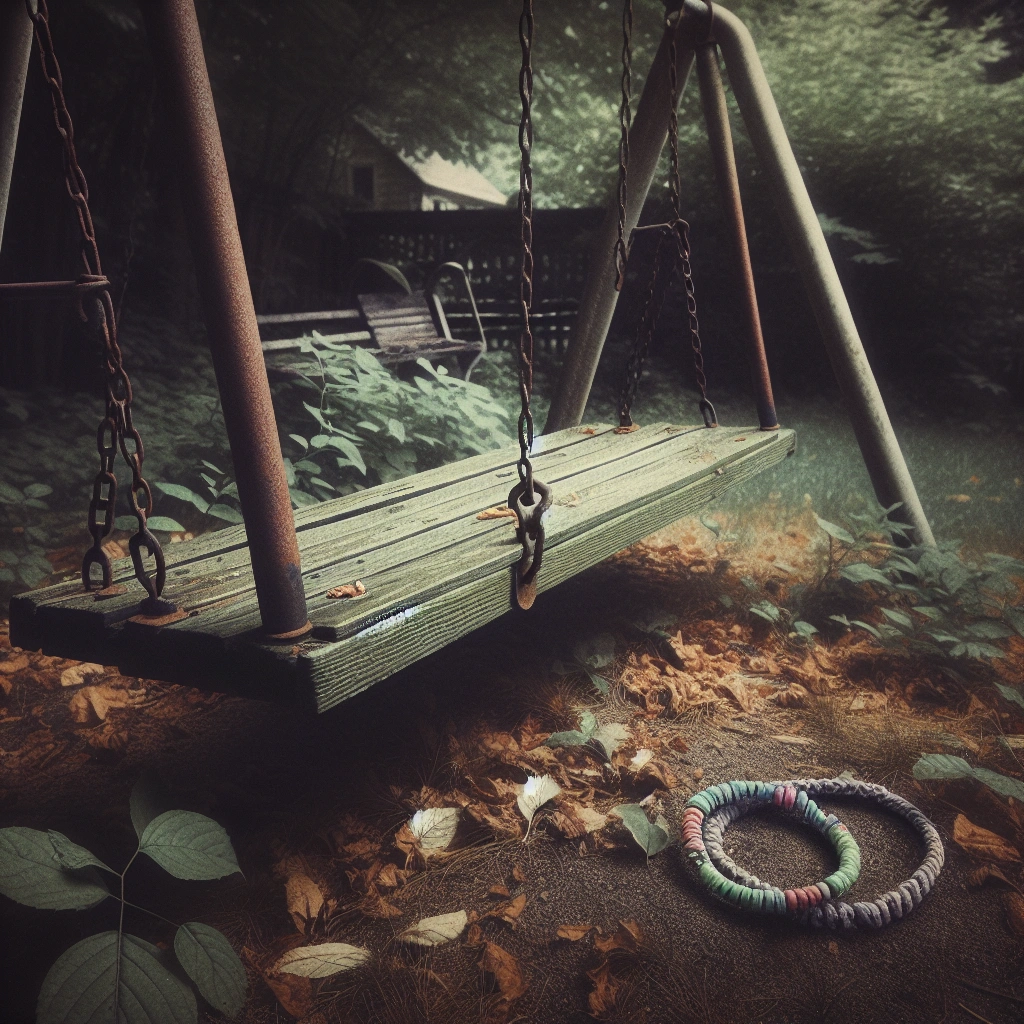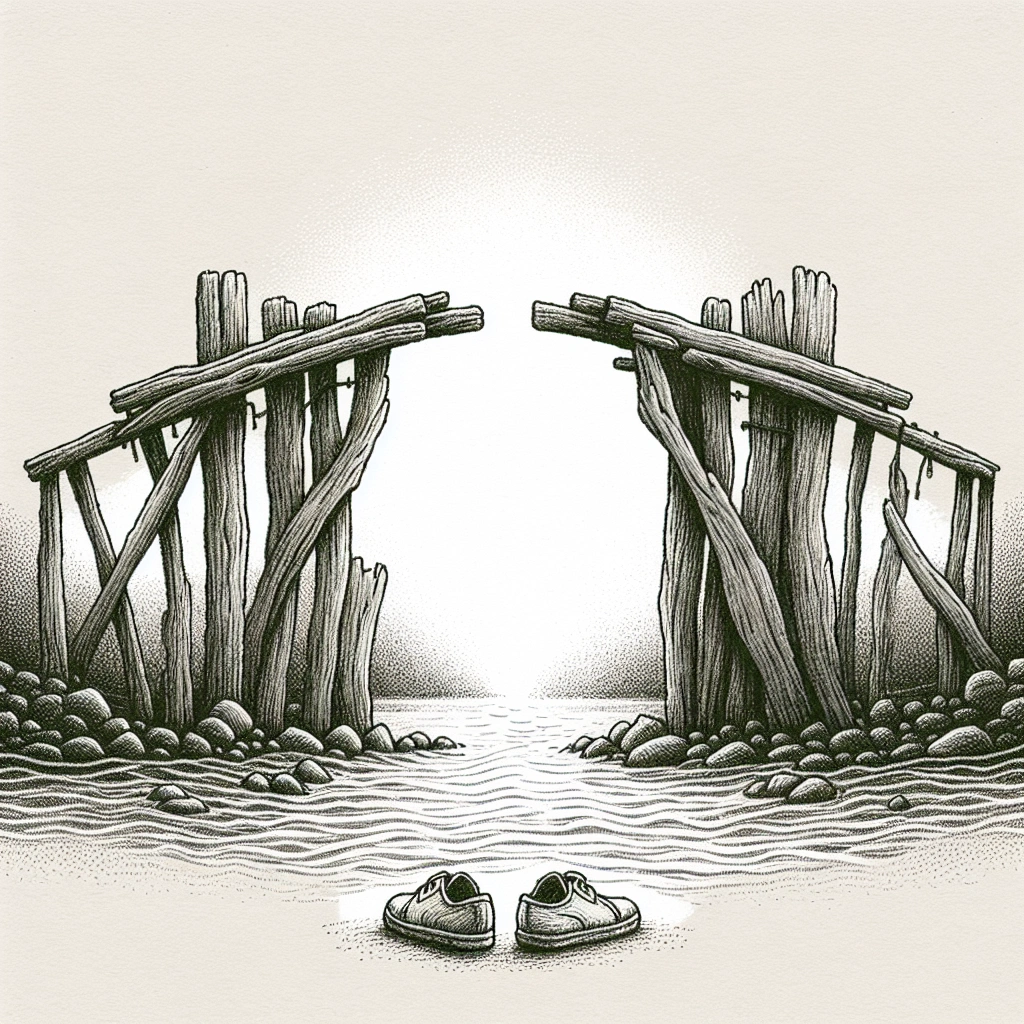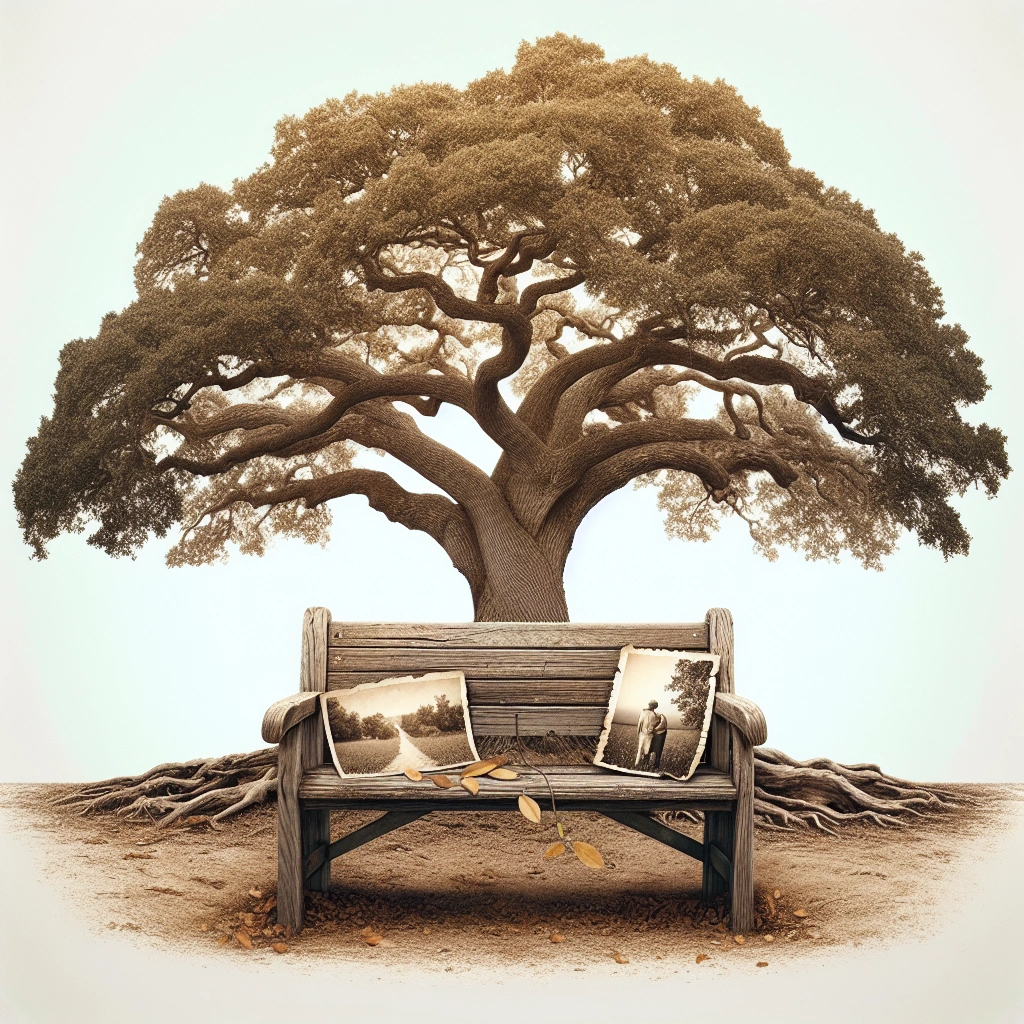Short Answer for “What Happened to Us? We Used to Be Best Friends”
Life transitions, including marriages, having children, or moving for jobs, led to different paths, making it challenging to maintain the same level of closeness as before.
Have you ever looked back and wondered, “What happened to us? We used to be best friends”? It’s a pang that hits deep, echoing those times when laughter was our language, and secrets were our currency. Life’s relentless march has a way of reshaping landscapes, including the sacred grounds of friendship.
Transitioning through life’s chapters — be it marriage, moving cities for jobs, or the joyous yet demanding journey of parenthood — tests the resilience of even the strongest bonds. These milestones, while monumental, can inadvertently set friends on divergent paths. Suddenly, conversations dwindle, misunderstandings brew, and before you know it, that comfortable closeness feels like a relic of the past.
But here’s the silver lining: understanding and adapting to each other’s new life roles can bridge that gap. It takes effort, yes, but the essence of your friendship – that unbreakable bond forged through shared memories and mutual support – has the power to reignite the spark. Reading on, you’ll discover how to navigate these changes, ensuring that ‘best friends forever’ isn’t just a fleeting promise but a lifelong commitment.
-
Life transitions such as marriage, having children, or moving for jobs can significantly alter friendships, impacting their closeness and nature.
-
Communication breakdowns can create misunderstandings or feelings of neglect, driving wedges between friends.
-
Diverging paths and interests may lead to less common ground, reducing the frequency and depth of interactions.
-
Efforts to reconnect and understand each other’s new life roles and changes can help revive and strengthen the friendship.
-
Resilience and adaptation in friendships are crucial for navigating through changes, with both parties needing to make efforts to maintain the bond.

The Golden Years: Reminiscing Our Unbreakable Bond
The Golden Years were a time of unbridled joy, deep trust, and unwavering support among friends, embodying the essence of an unbreakable bond that served as more than just a source of happiness but a foundational aspect of our social lives. Laughter before greetings, adventures without maps, and trading secrets with the ease of trading baseball cards highlight the depth of our connection, which was both a testament to our past and a beacon for our future relationships. Research supports the invaluable nature of such friendships, emphasizing their role in boosting happiness, providing emotional support, and fostering personal growth, proving that what we shared wasn’t just memorable; it was essential for our well-being.
Highlighting the days filled with laughter, shared secrets, and unconditional support.
Let me tell you folks, those were the days, the golden years, unparalleled and absolutely incredible. We’re talking about the times when you would pick up the phone and there’d be laughter before even a “hello” was exchanged. We were unstoppable, sharing secrets like we were trading baseball cards – effortless and with trust so deep, it was like the Mariana Trench of friendships.
Think about it, we had that unconditional support. You fall? I’ve got you. I slip? You’re there, catching me before I hit the ground. It was like a buddy cop movie but better because it was real. Our adventures, misadventures, the laughter that made our bellies ache – that was the stuff of legends.
For example, remember the time we decided to road trip without a map? Who does that?
We did. And it was epic.
We discovered places and parts of ourselves we didn’t know existed. Uncharted territories both literal and metaphorical.
Another example? How about the countless hours spent bolstering each other’s courage to face life’s myriad challenges?
That was us, standing side by side, champions in the face of adversity.
Analyzing how friendships serve as a foundational aspect of our social lives.
Folks, let’s get real here – friendships, like the one we’re reminiscing about, they’re not just nice to have; they’re essential, like air and water. They’re the backbone of our social lives. According to experts – and by experts, I mean real smart people who study this stuff (Mayo Clinic) – friends prevent loneliness and boost happiness. That’s science, people. Real science.
Friendships offer a sense of belonging. It’s like being part of an elite club, without the fees. A tribe where you’re valued, where your happiness is ramped up, and stress levels take a nosedive. It’s that increase in belonging and purpose that keeps the mental health wolves at bay.
Now, the benefits, they don’t stop there. Studies found adult friendships – particularly the high-quality types – significantly predict well-being and protect against the bogeymen of mental health: depression and anxiety. These aren’t just fleeting benefits. They persist across the lifespan, folks (APA). It’s like investing in the best mutual fund ever. The returns? Eternal well-being.
But wait, there’s more. True friendships, akin to what we had, provide emotional support and personal development avenues you can’t just pick up at your local store. They’re custom-made (Thejoint). And this support comes in all flavors – celebrating successes, mourning losses, and even those moments when we’d just sit in silence, knowing the other’s thoughts.
Folks, what we had, and what we shared during those golden years, it wasn’t just good times. It was the foundation of who we’ve become.
The laughs, the secrets, the unconditional support – it was and is a testament to the unbreakable bond that not only defined our past but continues to influence our present and future.
So, when pondering “what happened to us we used to be best friends”, remember, it’s not about lamenting the past, but cherishing and learning from it to forge stronger connections moving forward. Because let’s face it, those bonds, they’re still as strong as ever, waiting for the next chapter to be written. And write it, we shall.
| Feature | Description | Examples | Benefits | Source |
|---|---|---|---|---|
| Laughter | Integral part of the friendship, strengthening bonds | Laughing before saying “hello” on the phone | Boosts happiness, reduces stress | Mayo Clinic |
| Shared secrets | Symbol of deep trust and effortless exchange | Trading secrets like baseball cards | Increases sense of belonging and purpose | Mayo Clinic |
| Unconditional support | Always there to catch each other in times of need | Road trip without a map, facing life challenges together | Prevents loneliness, protects against depression and anxiety | APA |
| Adventures and Misadventures | Creating memorable experiences together | Discovering new places and parts of ourselves | Promotes personal growth and mutual understanding | Thejoint |
| Emotional Support | Being there for each other through ups and downs | Celebrating successes, mourning losses together | Enhances emotional well-being | Thejoint |

What Happened to Us? We Used to Be Best Friends?
Friends can drift apart due to several pivotal reasons, including significant life transitions like moving cities, changing career paths, or personal milestones such as marriages and having children, which inherently put pressure on the time and energy available for friendships. Additionally, a breakdown in communication can exacerbate the drifting apart, where misunderstandings or lack of effort in maintaining the relationship lead to a widening gap, reminiscent of building a project with no coordination. Diverging paths further complicate friendships, as people grow, evolve, and develop new interests, making it challenging to maintain the same level of closeness and understanding as before, despite the foundational bond that may exist.
Investigating the subtle and not-so-subtle changes that contribute to the drifting apart of friends.
It’s a situation many of us face, folks. One day you’re inseparable with your best friend – sharing secrets, dreams, and the juiciest gossip.
The next thing you know, there’s this distance colder than a New York winter between you. You start asking yourself, “What happened to us?
We used to be best friends.” Let’s dive deep into this mystery.
First off, life transitions are huge. I mean, massive. You’ve got people getting married, having kids, moving cities for that dream job at Trump Tower – or any job, really. Life doesn’t hit the pause button for friendships, even though it should. Remember, folks, when big life transitions happen, our friendships change. It’s like when I transitioned from real estate mogul to the President of the United States; things changed. Life transitions can put pressure on your friendship, but believe me, they can also make your bond stronger if you navigate them like a champ.
Understanding communication breakdowns, life transitions, and diverging paths.
Let’s talk about communication breakdown. It’s a real deal-breaker. Imagine you’re building a beautiful wall, but nobody’s communicating properly – it’s a disaster. Betrayal of trust from failure to secure private information can sour friendships. It’s all about keeping those channels open and clear, folks. Failure leads to a foundation as unstable as a house of cards. Communication breakdowns Create a rift as big as the Grand Canyon.
Now, onto diverging paths. This is where life gets interesting. You’re on your path, making America great again, and your friend, well, maybe they’re on a different journey. People change, interests evolve, and before you know it, you’re into golf and they’re into… I don’t know, knitting? It’s not a bad thing. It’s just life. But it can mean you see less and less of each other. Growth and change are part of being human; they’re inevitable, like taxes (well, for some people).
To sum it up, folks, friendships are like beautiful, intricate towers. They need a solid foundation, regular maintenance, and, most importantly, clear communication channels.
Whether it’s stepping into new roles or paths diverging like roads in a yellow wood, the essence of friendship can withstand a lot. But remember, it takes two to tango, or in this case, to keep a friendship blooming like a well-tended garden.
When life throws curveballs, like a new job, a move, or even becoming the President, remember the golden rules: communicate, adapt, and support. After all, isn’t resilience what makes any relationship stronger?
Believe me, navigating through the changes together, you’ll make your friendship great again – maybe even better than ever before.
And folks, let’s not forget, sometimes a little effort goes a long way. A call, a text, or even a tweet – it’s the small things that keep the bond strong.
Keep those lines open and never underestimate the power of reaching out first. It’s like negotiating a deal; someone’s got to make the first move.
So, to all the folks out there wondering “What happened to us? We used to be best friends?” – take a step back, assess the situation, and maybe it’s time to build a new bridge.
Because, believe me, great friendships, they’re worth more than gold. They’re absolutely, positively, the best deal you’ll ever make.
The Rollercoaster of Emotions: Navigating Through Loss and Regret
Navigating through the loss and regret of a close friendship triggers a tumultuous rollercoaster of emotions, akin to traversing the five grieving stages of denial, anger, bargaining, depression, and acceptance, though not necessarily in a linear fashion. It’s crucial during this time to confront and allow oneself to experience these feelings fully, leveraging strategies such as reaching out for support, engaging in self-care, reflecting on personal growth, initiating new connections, and establishing healthy boundaries in future relationships. This emotional journey, while challenging, offers an opportunity for profound personal development and resilience, guiding one towards emerging stronger, wiser, and more equipped for future friendships.
The psychological impact of losing a close friend and the stages of grieving a friendship.
Losing a close friend can feel like you’ve lost a part of yourself – it’s huge, it’s devastating, and it’s not something you just get over quickly, believe me. This loss can spiral you into a rollercoaster of emotions, including intense sadness, maybe some anger, and a lot of confusion. You’re not just missing a person, but a piece of your history, your shared jokes, those late-night chats, and all the support you’ve come to rely on.
The grief process, folks, it’s like going through five stages – denial, anger, bargaining, depression, and acceptance. It’s not linear; it’s more like a wild ride that makes the stock market look steady.
One day, you’re denying anything’s changed (“We’ll patch things up, it’s just a phase!”), the next, you might be bargaining to get that friendship back at any cost.
Strategies for coping with loss and fostering personal growth in the absence of a once central relationship.
When you find yourself asking, “What happened to us; we used to be best friends”, it’s crucial to remember that personal growth and healing are not just possible; they’re absolutely within your reach.
-
Acknowledge Your Feelings: It’s essential to face what you’re feeling, not bury it under a pile of work or a marathon of TV shows. Accept that it’s okay not to be okay for a while.
-
Reach Out for Support: Contrary to some opinions, asking for help isn’t a weakness. Lean on other friends, family, or even seek professional help. There’s strength in admitting you need support.
-
Focus on Self-care: Now, more than ever, it’s vital to take care of yourself. Exercise, dive into hobbies, or try new activities. This boosts your mental health and opens doors to new friendships.
-
Reflect on What You’ve Learned: Every friendship, even the ones that end, teaches us something. Reflect on the good times, understand what went wrong, and think about how this shapes the friend you want to be going forward.
-
Forge New Connections: Start meeting new people-not as a replacement, but as a broadening of your social network. Whether it’s joining clubs, attending workshops, or just saying yes to more social outings, new connections can provide fresh perspectives and support.
-
Set boundaries for future friendships: Learning from past experiences, setting healthy boundaries in future friendships is key. This isn’t about building walls but about having mutual respect and understanding with new friends.
Remember, folks, navigating through the loss and regret of a once cherished friendship is tough, very tough, but with the right strategies and support, you can emerge stronger and more resilient. It’s about taking it one step at a time, acknowledging your feelings, and allowing yourself the space to heal and grow.
It might feel like you’re stuck in a bad reality show, but trust me, the season finale has a twist you won’t see coming-you thriving.

Rebuilding Bridges: Steps Towards Reconciliation
When you’re sitting there thinking, “what happened to us we used to be best friends,” it’s like, wow, we’ve got some huge work to do. But let me tell you, it’s going to be fantastic, absolutely fantastic. We’re going to rebuild those bridges and believe me, they’re going to be the best bridges you’ve ever seen. So, let’s get down to it, step by step, in the most direct and effective way possible. It’s going to be great.
Practical advice on initiating contact and opening channels of communication.
First off, start with reaching out. It’s like picking up the phone and calling someone you haven’t spoken to in years, but you’ve got to do it. Make it casual, no pressure. Just a simple, “Hey, how have you been?” can work wonders. Remember, it’s all about initiating that conversation; be mindful of their feelings and boundaries. It’s like knocking on someone’s door. You don’t just barge in; you wait for them to invite you in. For more details on this, you can check out this amazing guide on winning someone back.
Next, you’ve got to listen. I mean, really listen. It’s not just about hearing words; it’s about understanding the emotions behind them. This is key. Think of it as being in a very important meeting where every detail matters. When they share, it’s your job to really get where they’re coming from. This opens up communication like nothing else.
And please, let’s not forget apologies. If you dropped the ball, admit it. It’s like if I told you I was going to build the best hotel ever and then didn’t – I’d need to own up to that. An apology can go a long way. It shows you’re taking responsibility, which is both mature and respectful.
Emphasizing the importance of forgiveness, understanding, and setting new boundaries for a revitalized friendship.
Forgiveness – it’s absolutely huge. You can’t move forward without it. It’s like trying to build a tower on a shaky foundation. Not going to happen. Forgiving doesn’t mean forgetting; it means choosing to move past the hurt. It’s a choice, and it’s a powerful one. For an in-depth look at its role in mending relations, this piece is a must-read.
Understanding comes next. You’ve got to really try to see things from their point of view.
It’s like putting yourself in someone else’s shoes, even if they’re not your size. It might not be comfortable, but it’s necessary.
This deepens your connection and rebuilds trust.
Setting new boundaries is critical. It’s like when you have a garden; you put a fence around it not to keep everything out but to ensure that what’s inside can flourish. Talk about what’s okay and what’s not, openly and respectably. This article on setting healthy boundaries with friends offers brilliant insights.
Remember, rebuilding a friendship is like refurbishing a magnificent building. It takes time, effort, and a lot of care.
But once you’re done, it’s stronger and more beautiful than before. So, prepare to put in the work, and soon you’ll look back and say, “Look at what we’ve rebuilt.
Isn’t it wonderful?”

Reflection and Moving Forward: Cultivating New Definitions of Friendship
Reflecting on and moving forward means embracing the evolution of friendships as we journey through different life stages, recognizing the importance of cherishing old memories while being open to forming new connections and redefining companionships. By adopting a flexible approach, focusing on quality interactions, and supporting each other through transitions, we cultivate relationships that are resilient and enriching. This process encourages us to expand our circles, finding value and joy in both longstanding bonds and the fresh perspectives new friends offer, ultimately crafting a more diverse and fulfilling social fabric.
Learning to cherish the memories while adapting to the current state of the relationship.
We’ve all been there, thinking, “what happened to us we used to be best friends,” while scrolling through our photo libraries, reminiscing the good old days. It’s like one day you’re inseparable, and suddenly, life happens.
Jobs, families, moves-it all adds up, changing the dynamic faster than a New York minute. But here’s the thing, folks, cherishing those memories, that’s key.
It’s not about mourning the past but celebrating it. These memories are the foundation of something timeless, proof that once, you were tighter than a well-done Trump steak.
For example, remember the time you all road-tripped to Vegas without a plan? Hilarious.
Now, maybe your meetups are at a kid’s birthday party instead of Sin City, but that’s okay. It’s about adapting, not losing.
Adapting to this change keeps the friendship real and alive, even if it’s different from the sun-soaked days of youth.
The significance of forming new connections and redefining what friendship means in different stages of life.
Now, let’s talk about forming new connections. Life’s stages are like seasons in the best reality TV show ever made; they keep changing, and with them, our needs and priorities shift too.
In your twenties, a friend might be someone who is always up for a spontaneous night out. Fast forward a few years, and suddenly, a friend is someone who doesn’t mind talking about mortgage rates or the best schools in the neighborhood.
It doesn’t mean the old friendships weren’t real-they were perfect for that stage of life. But as we evolve, it’s genius to welcome new friendships that align with our current reality.
For instance, joining a parent group if you’re a new parent or connecting with colleagues if you’ve made a significant career shift. These connections provide support and understanding in ways that your past friendships might not be able to.
It’s not about replacing the old; it’s about expanding the circle.
Looking at friendships through the lens of stages in life, as suggested by The Atlantic, explains why it sometimes feels like you’re speaking different languages with old friends. The truth is, you are. You’re in different chapters of your life, and that’s perfectly okay.
Building Bridges Between Different Stages of Friendships
-
Communication is Key: Keep the lines open. Even if you can’t meet as often, a simple text or call can keep the connection alive.
-
Make New Memories: When you do get together, try something new. It’s not about reliving the past but creating new moments to cherish.
-
Be Open to New Connections: Meet new people without the guilt of “replacing” old friends. New friends bring different perspectives and experiences to your life, enriching it further.
-
Respect the Evolution: Understand that people change, including you. Embrace these changes in each other to keep the friendship buoyant.
Embracing New Definitions of Friendship
-
Flexibility: Friendships in adulthood require flexibility. Life gets busy, but that doesn’t mean the bond is any less strong.
-
Quality Over Quantity: It’s not about how often you see each other but the quality of the time you spend together.
-
Support During Transitions: Life transitions are smoother with friends by your side, be it old ones who’ve stood the test of time or new ones who are going through similar changes.
| Stage of Friendship | What It Might Look Like |
|---|---|
| Youth | Hanging out after school, sharing interests |
| Young Adulthood | Deep conversations, exploring life’s possibilities |
| Midlife | Supporting each other through life’s ups and downs |
| Later Life | Reflecting on past adventures, cherishing companionship |
Crafting new definitions of friendship isn’t about forgetting the past; it’s about acknowledging that what brought you together is still there, beneath the surface. It’s about giving greater weight to what you share than focusing on the differences that life’s inevitable changes might bring.
Adapting your understanding of friendship ensures that your relationships can withstand not just the test of time but also the progression of life stages, making for a journey that’s truly remarkable.

Conclusion
Reflecting on the question, “what happened to us we used to be best friends,” it’s evident that various life changes and communication breakdowns have distanced us. Life transitions, whether personal or professional, along with evolving interests and paths, have contributed to the shift in our friendship. Despite the changes, the essence of our bond remains, capable of withstanding time and transformation if nurtured with effort and understanding.
The core of rediscovering our connection lies in acknowledging the changes, embracing open communication, and making concerted efforts to adapt and support each other. True friendships can weather significant shifts when both parties are willing to bridge the gap. Initiating conversation, extending support during life transitions, and showing interest in each other’s new paths can rekindle our bond.
Personal growth and the fostering of new connections shouldn’t negate the value of our past; instead, they provide a richer context to our story. Reflecting on what we’ve learned from each other and how we’ve evolved offers an opportunity for deeper connection moving forward. By cherishing our shared history and learning from our time apart, we can navigate the next chapters of our friendship with greater wisdom and resilience.
